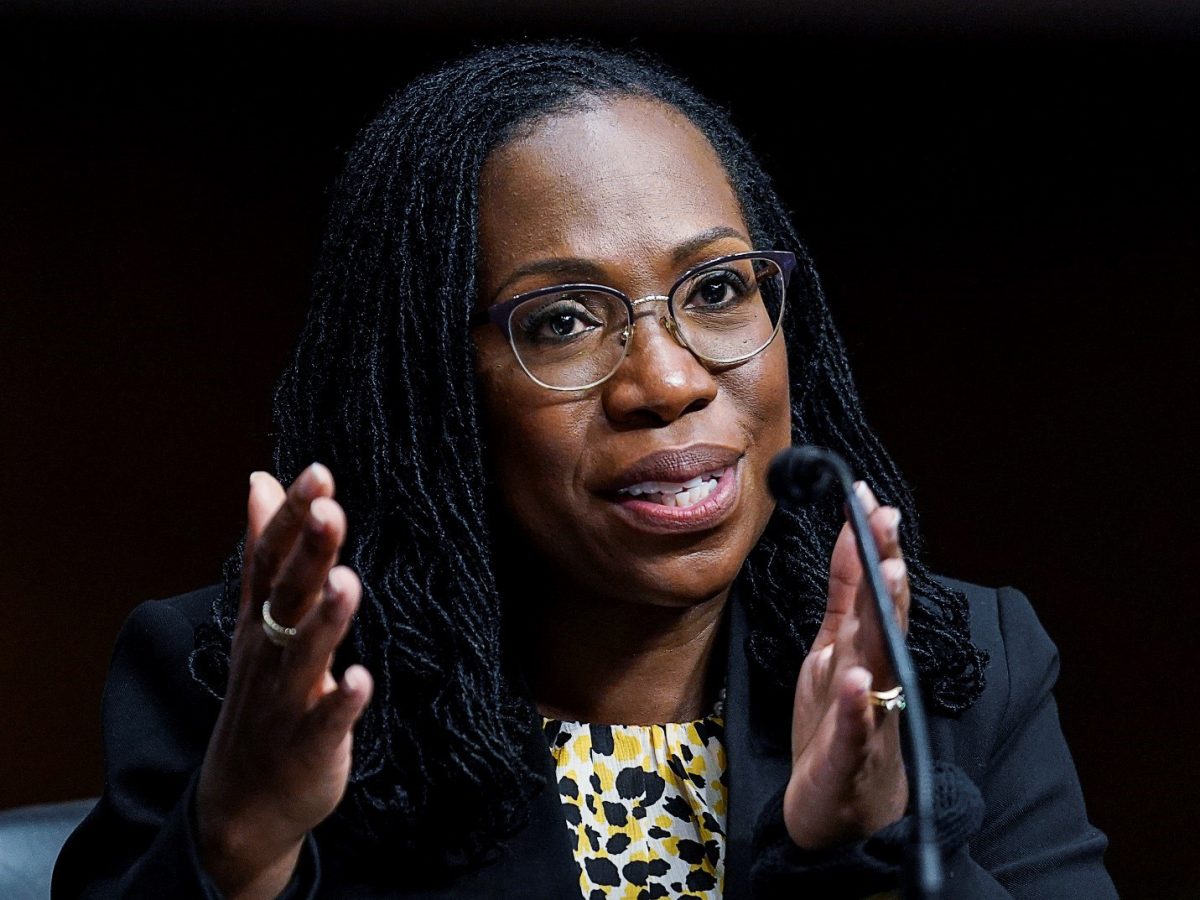WASHINGTON, (Reuters) – President Joe Biden yesterday nominated federal appellate judge Ketanji Brown Jackson to become the first Black woman to serve on the U.S. Supreme Court, saying it is time for America’s top judicial body to reflect “the full talents and greatness of our nation.”
Biden picked Jackson, 51, for a lifetime job on the high court to succeed retiring liberal Justice Stephen Breyer, setting up a confirmation battle in the closely divided Senate. Jackson’s nomination fulfills a campaign promise Biden made two years ago to the day to deliver the historic appointment.
Biden appeared at the White House with Jackson and Vice President Kamala Harris, the first Black person to hold that office after he chose her as his 2020 running mate.
“For too long, our government, our courts haven’t looked like America. I believe it’s time that we have a court that reflects the full talents and greatness of our nation with a nominee of extraordinary qualifications,” Biden said.
Biden called Jackson a “proven consensus builder, an accomplished lawyer, a distinguished jurist,” adding that he “looked for someone like Justice Breyer who has a pragmatic understanding that the law must work for the American people.”
If confirmed, Jackson would join the liberal bloc on an increasingly assertive court that has a 6-3 conservative majority including three justices appointed by Biden’s Republican predecessor Donald Trump.
Jackson paid tribute to Biden for “discharging your constitutional duty in service of our democracy with all that is going on in the world today,” apparently alluding the Russia’s invasion of Ukraine.
“I must begin these very brief remarks by thanking God for delivering me to this point in my professional journey. My life has been blessed beyond measure. And I do know that one can only come this far by faith,” Jackson said. Jackson has served since last year on the influential U.S. Court of Appeals for the District of Columbia Circuit after eight years as a federal district judge in Washington and earlier working as a Supreme Court clerk for Breyer. Jackson would become the sixth woman ever to serve on the Supreme Court, which currently has three female justices. Biden noted Jackson’s family ties, with both her parents being former public school teachers and two uncles and a brother having worked in law enforcement. Another uncle served a prison sentence for drug-related offenses.
Biden, who took office last year, is sagging in opinion polls, with 43% of U.S. adults approving of his job performance in a Reuters/Ipsos poll. Any political benefit for Biden with the historic nomination could be diluted by the Ukraine crisis.
Democrats narrowly control the evenly split 100-seat Senate, and if they stay united could confirm Jackson with no Republican votes, with only a simple majority needed. Democrats have said they plan to move the nomination on a timetable similar to the single month that Republicans used for Trump’s third appointee Justice Amy Coney Barrett in 2020.
Biden urged the Senate Judiciary Committee, which is due to hold confirmation hearings, to move promptly. Democrat Dick Durbin, the committee’s chairman, said it would “begin immediately” to move forward. A hearing date has not yet been announced.
Other contenders for the nomination included South Carolina-based federal judge J. Michelle Childs and California Supreme Court Justice Leondra Kruger.
Former President Barack Obama, who first appointed Jackson to the federal judiciary in 2013 and considered her for a 2016 Supreme Court vacancy, called Biden’s nominee “an excellent choice,” writing on Twitter that she “understands that the law isn’t just about abstract theory. It’s about people’s lives.”
REPUBLICAN CRITICISM
Top Senate Republican Mitch McConnell called Jackson “the favored choice of far-left dark-money groups that have spent years attacking the legitimacy and structure of the court itself.” McConnell previously signaled that if Republicans regain the Senate majority in the Nov. 8 midterm elections, he could block any further Biden Supreme Court nominees.
The Senate voted 53-44 last year to confirm Jackson after Biden nominated her to the D.C. Circuit – the third time it has voted to confirm her to a job. Senator Lindsey Graham, one of three Republicans who voted for Jackson last year, signaled a change of tune on Friday, saying her nomination showed “the radical Left has won President Biden over yet again.”
At Jackson’s confirmation hearing last year, Republicans questioned her on whether race plays a role in her approach to deciding cases. She said it did not.
Democrats, who control the Senate because Harris can break a tie, currently lack a working majority after Democratic Senator Ben Ray Lujan had a stroke. He is expected to recover in time to vote on Jackson.
Jackson, who was raised in Miami and attended Harvard Law School, earlier in her career represented criminal defendants who could not afford a lawyer. She was part of a three-judge panel that ruled in December against Trump’s bid to prevent White House records from being handed over to a congressional panel investigating last year’s Capitol attack.
While Jackson would not change the court’s ideological balance – she would be replacing a fellow liberal – her nomination enables Biden to refresh its liberal wing with a much younger jurist who could serve for decades. Jackson’s nomination gives Biden a chance to shore up support among women, minorities and liberals ahead of the midterm elections.
The Supreme Court will rule in the coming months in cases that could curb abortion rights and expand gun rights. If confirmed, Jackson would be on the court in its next term when it is due to hear a case that could end affirmative action policies used by colleges and universities to increase the number of Black and Hispanic students.

